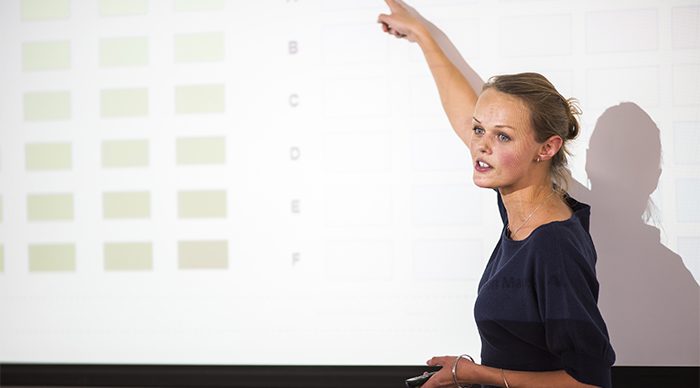When Harry Potter actress, Emma Watson, claimed that she suffered from ‘Imposter Syndrome’, she was ridiculed by many. Yet feelings of inadequacy are very real and suffered by many professionals, including teachers.
It is a syndrome which affects women far more than men. Since teaching is a female dominated profession, it raises significant questions on how teachers can progress, and how best their talents can be nurtured and developed. Many highly rated teachers, including those who lead departments and manage others, experience self-doubt and a nagging suspicion that their expertise and intellectual credentials have been over-stated. They feel that at some point they will slip up and be ‘found out’. This isn’t helped by the lack of training offered to accompany promotions to middle management within schools. A promotion can leave people floundering and having to feel their way to becoming a successful manager.
It can also be true for the newly qualified teacher who spends the first few months of their teaching career feeling as though they aren’t much further on than the sixth formers in front of them. There is a tendency for them to worry that they may be asked questions they can’t answer, or face a situation they can’t deal with. Mentoring can help. However, many new teachers simply compare themselves unfavourably with their far more experienced mentors and end up feeling worse about their own abilities. Few schools foster an environment where raising feelings of inadequacy as a teacher would be viewed as positive and constructive. Experts say that tackling this issue in the workplace requires those in senior positions to voice their own insecurities honestly. This is somewhat anathema to many schools where subject leaders are expected to present themselves as infallible, focusing much of their time on monitoring the quality of the teaching of those they manage.
However, these self-doubters should stop worrying and realise that their feelings of inadequacy are actually what will make them better teachers and managers over the course of their careers. As Bertrand Russell once said, “The trouble with the world is that the stupid are cocksure and the intelligent are full of doubt”. Any teacher who claims they know everything there is to know about teaching their subject and they have nothing to learn or gain through focused CPD, is denying themselves and their students the opportunity to grow and experience new approaches to teaching and learning.,
One of the most rewarding aspects of my role as a trainer is creating a safe environment for teachers in my training courses. At a recent training event in the US the delegates were asked to create a diamond nine, summing up what effective CPD looks like. What came through in their responses was a desire to learn collaboratively in a positive, respectful and safe environment.
 One of the best things about training courses is the opportunity to leave the ‘bubble’ of your own school and classroom. Training courses provide an opportunity to work with teachers from different schools in order to share good practice through active collaboration. Many teachers will voice their doubts and insecurities in training courses and will often find that their own feelings are mirrored by the colleagues around them. Through effective CPD teachers can recognise and focus on their strengths, build their knowledge and understanding of effective methods of delivery, and share good practice.
One of the best things about training courses is the opportunity to leave the ‘bubble’ of your own school and classroom. Training courses provide an opportunity to work with teachers from different schools in order to share good practice through active collaboration. Many teachers will voice their doubts and insecurities in training courses and will often find that their own feelings are mirrored by the colleagues around them. Through effective CPD teachers can recognise and focus on their strengths, build their knowledge and understanding of effective methods of delivery, and share good practice.
Cambridge has been working on the development of new training courses – enrichment courses – aimed at teachers exploring new approaches to teaching their subject.
These training sessions focus on active learning, assessment for learning and meta-cognition. They aim to explore ways of facilitating deeper learning in the classroom through practical and collaborative activities. They introduce teachers to current research and offer new approaches to teaching familiar skills and topics. David Weston of the Teacher Development Trust highlights ‘superficiality’ as one of the ‘seven deadly sins of teacher development’. He stresses that teachers need to understand the underlying theory, rather than rush off to try new ideas in the classroom with limited understanding of their purposes. Passive learning in training is unlikely to lead to anything other than superficial take-aways that will not improve teaching in the long term because they are not embedded in the teacher’s understanding of what makes effective classroom practice. When attending enrichment courses, teachers are asked to do some reading in advance of the course to ensure sufficient levels of knowledge and understanding. These courses encourage teachers to become critically reflective practitioners and to recognise the limitations of examination success driving pedagogy.
When I first became a trainer, like Emma Watson, I experienced ‘Imposter Syndrome’. I worried about whether I could really claim to be an expert in my field, despite years of experience teaching, senior examining, writing teacher resources and managing a faculty. My first overseas training event was in Zimbabwe and when greeting my delegates on the first morning, two of them informed me that they had endured a thirty hour bus journey to attend. I felt even more humbled. I soon realised that the key to being a successful trainer is far less complex than I expected: listen to delegates; invite and respond to feedback; and reflect critically on each session to enable my training to improve continuously.
As a trainer you work with teachers, facilitate the training session and empower teachers with collaborative peer learning to ensure they go away with a long term focus on improving learning in their classroom. I can honestly say that I have learnt as much from my participants as I hope they have learnt from me. I no longer suffer feelings of self-doubt, but I know that acknowledging, embracing and responding to those feelings have made me a far more effective trainer.





